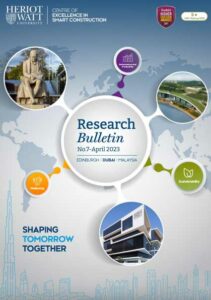It’s reassuring to see that biomass is being considered as an alternative fuel source to fossil fuels in large, energy-dependent industries such as the cement industry.
 A recent publication from the Centre of Excellence in Smart Construction from Heriot-Watt University includes a preliminary report submitted to the UAE Cement Decarbonisation Delivery Group (CDDG) titled “Materials & Waste Management for Decarbonisation of the Cement Industry in the UAE”. The paper reports on work undertaken by the UAE Ministry of Climate Change and Environment and led by the Centre of Excellence in Smart Construction (CESC) at Heriot-Watt University to decarbonise the cement industry in line with the UAE strategy and commitment to become a net-zero carbon country by 2050.
A recent publication from the Centre of Excellence in Smart Construction from Heriot-Watt University includes a preliminary report submitted to the UAE Cement Decarbonisation Delivery Group (CDDG) titled “Materials & Waste Management for Decarbonisation of the Cement Industry in the UAE”. The paper reports on work undertaken by the UAE Ministry of Climate Change and Environment and led by the Centre of Excellence in Smart Construction (CESC) at Heriot-Watt University to decarbonise the cement industry in line with the UAE strategy and commitment to become a net-zero carbon country by 2050.
Among other recommendations for the decarbonisation of the cement industry, it concludes that biomass fuels can be a potential alternative to fossil fuels. The paper goes on to recommend that R&D is undertaken on replacing fossil fuels with Biomass to reach a range from 40% to 60%. It also notes that cost and efficiency should be essential parts of the research to encourage the cement industry to take this action.
Any switch, or more likely a partial migration, from fossil fuels to biomass within industries such as this has to be good news for the biomass sector.
You can read the full publication and this article in particular here: https://issuu.com/heriot-watt_university_dubai/docs/cesc_bulletin_april_2023



